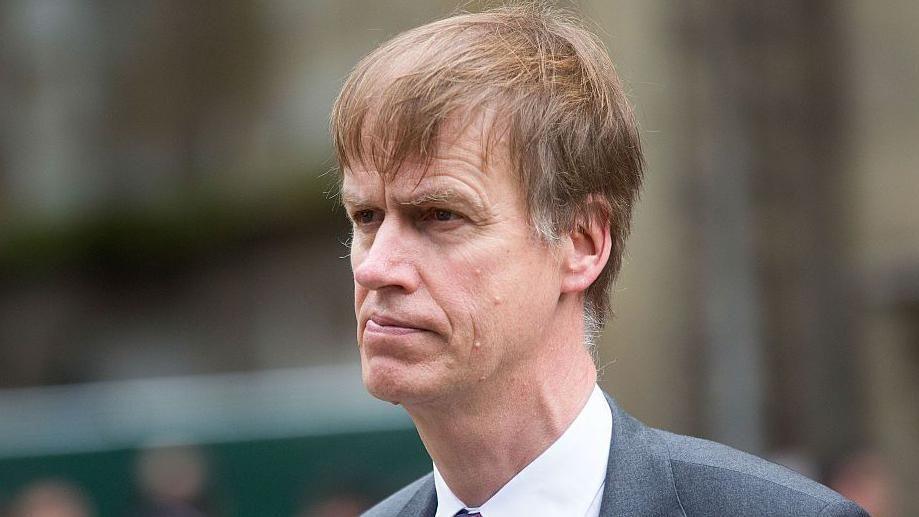Disability groups 'stepping back' over benefit cuts

Sir Stephen Timms, Minister for Social Security and Disability
- Published
A number of Deaf and Disabled People's Organisations have told the BBC they are considering stepping back from working with the government over proposed benefit cuts.
The organisations, known as DDPO's which are run for and by disabled people, say there has been a lack of genuine engagement from the Labour government.
It comes as it launches accessible formats of the consultation on the cuts, triggering a 12-week period for people to give their views.
Sir Stephen Timms, Minister for Social Security and Disability, said the government needs the opinions of disabled people to move forward.
Appearing on the BBC's disability and mental health podcast, Access All, Sir Stephen said: "I very much hope that they will carry on talking to me because I need to know what they think about these proposals.
"I want to make sure that the views and voices of disabled people are at the heart of what we do in this area, [as well] as elsewhere across the government."
The Spring Statement, announced in March, outlined that a benefit shake-up to make savings of £5bn would include tightening eligibility for Personal Independence Payment, a non-means tested benefit to support people with everyday tasks. It also outlined that people under the age of 22 could be prevented from claiming universal credit top-up payments for health conditions.
Fazilet Hadi, head of policy at Disability Rights UK, a DDPO, said there was an "anger and sense of betrayal" felt by millions of disabled people over the cuts which she described as "the Government's massive attack on the incomes of disabled people".
Ms Hadi said: "Currently, Disability Rights UK, continues to have dialogue with ministers, as we believe it is important to express the depth of opposition to government plans.
"Having said this, we will reconsider our position, should the wider disabled people's movement decide to take a different stance."
Svetlana Kotova, director of campaigns and justice at Inclusion London, another DDPO, said it was also "considering its position on engagement".
She said: "Massive cuts to financial support will push disabled people, including children, into poverty, the government is not even consulting on the most significant cuts"
Listen to Sir Stephen Timms, Minister for Social Security and Disability, talk about the controversial benefit cuts
Suspended Labour MP, John McDonnell, who represents Hayes and Harlington in Parliament and previously held the position of shadow chancellor, also told Access All of his "shock and anger" at the plans, and said he was "praying" for a government U-turn.
Initially, the government's reforms to benefits were intended to make savings of £5bn a year by 2030, but the Office for Budget Responsibility has revised government figures, projecting a lower net saving of £3.4bn.
The government says that without radical reforms to the benefit system it could cost the tax payer as much as £70bn annually by the end of the decade.
To make savings, other planned changes include freezing extra payments for existing claimants of Universal Credit and almost halving them for new applicants.
The government says some of the money saved will be reinvested into work programmes targeting youth unemployment.
Alongside the 12-week consultation, which ends on 30 June, the government has announced the formation of "collaboration committees" which will involve civil servants working with disability experts and those with lived experience to "provide discussion, challenge, and recommendations" to inform government proposals.
You can listen to Sir Stephen Timms on BBC Access All on BBC Sounds. Subscribe and email your thoughts to accessall@bbc.co.uk